What is chemotherapy?
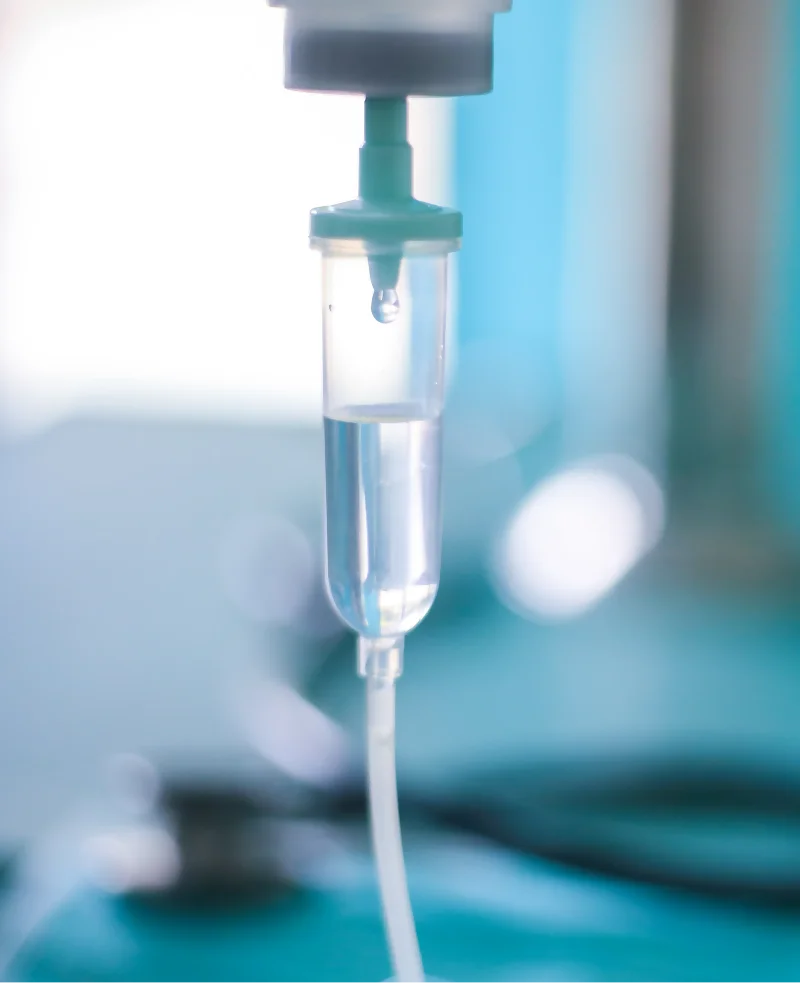
Chemotherapy is a treatment with medications designed to destroy rapidly growing cells in the body. It is commonly used to fight cancer, as cancer cells reproduce much faster than most normal cells.
There are various chemotherapy drugs that can be used alone or in combination to treat different types of cancer. Although it is effective, chemotherapy can cause side effects, ranging from mild to severe. Today, there are many ways to prevent, reduce, and treat these side effects when managed by specialists.

¿Por qué elegir al Centro Médico ABC para tu quimioterapia?

- Specialized care: Both the space and all the staff at the Outpatient Chemotherapy Center are dedicated to the care of cancer patients, being sensitive to specific needs with a strong sense of humanity.
- Innovation in outpatient chemotherapy: With over 12 years of experience, we apply innovative outpatient chemotherapy regimens and medications with the highest quality standards and personalized attention for stable patients who do not require hospitalization.
- Specialized supervision in oncology treatments: Our specialized medical and nursing teams oversee treatment administration, following surveillance protocols to ensure treatment safety and minimize potential risks and complications.
- Guarantee of sterility and safety in oncological mixtures: We have our own mixing center ensuring the sterility and availability of oncology mixtures, complying with national and international medication safety standards.
- Specialized medical care and continuous monitoring: Our team includes specialized medical and nursing professionals trained to provide clinical care and monitoring during both morning and afternoon oncology treatment shifts.
We have special facilities on both campuses that offer a comfortable, tranquil, and private environment.
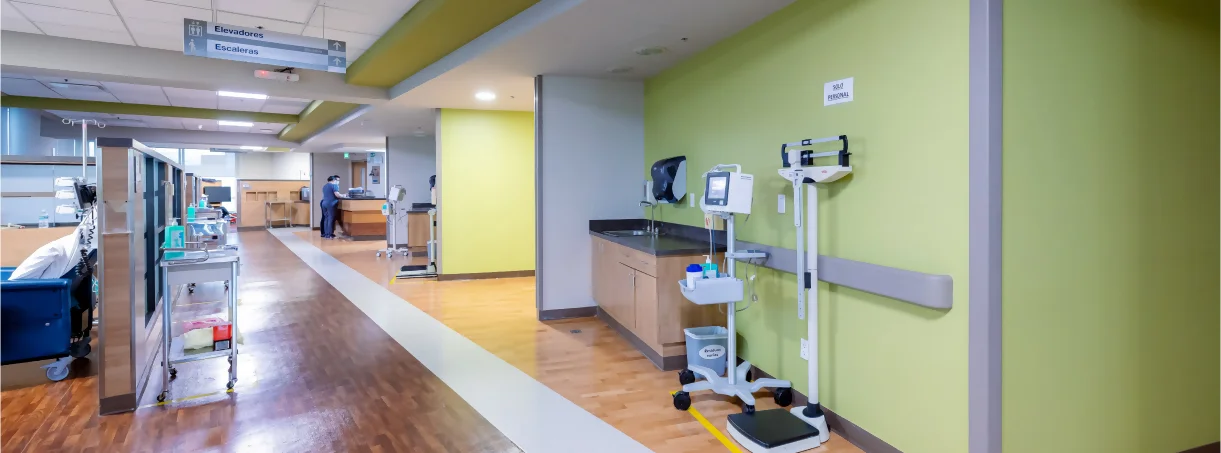
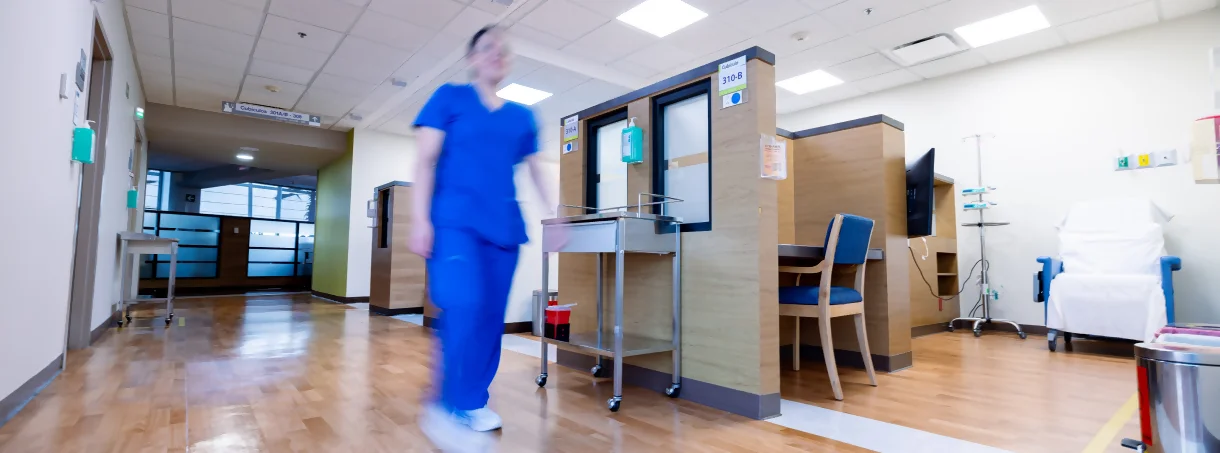
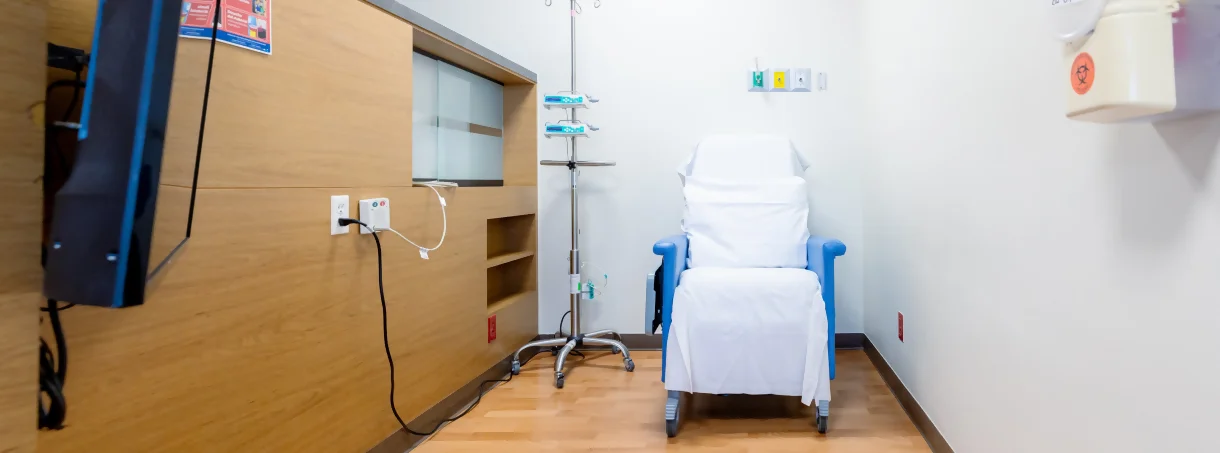
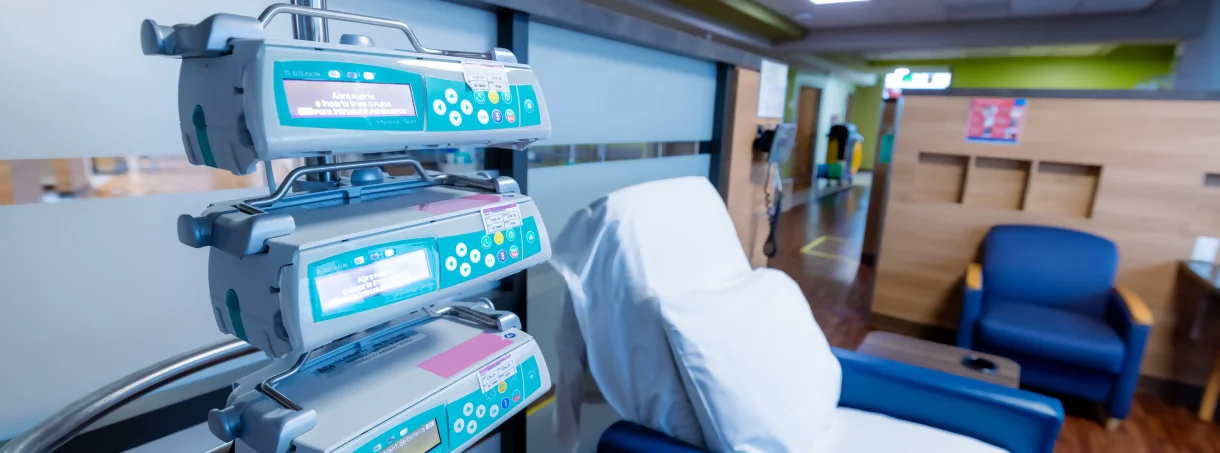
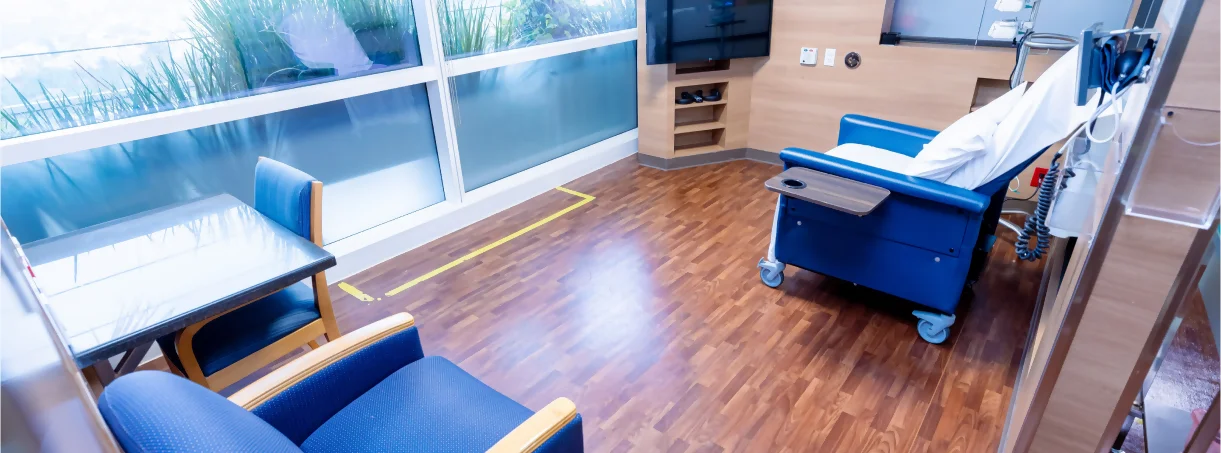
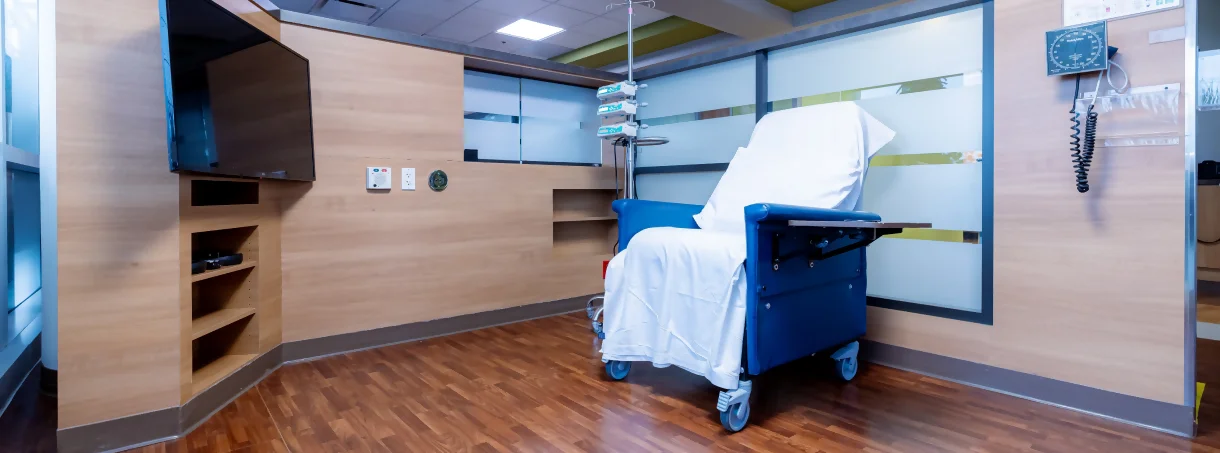
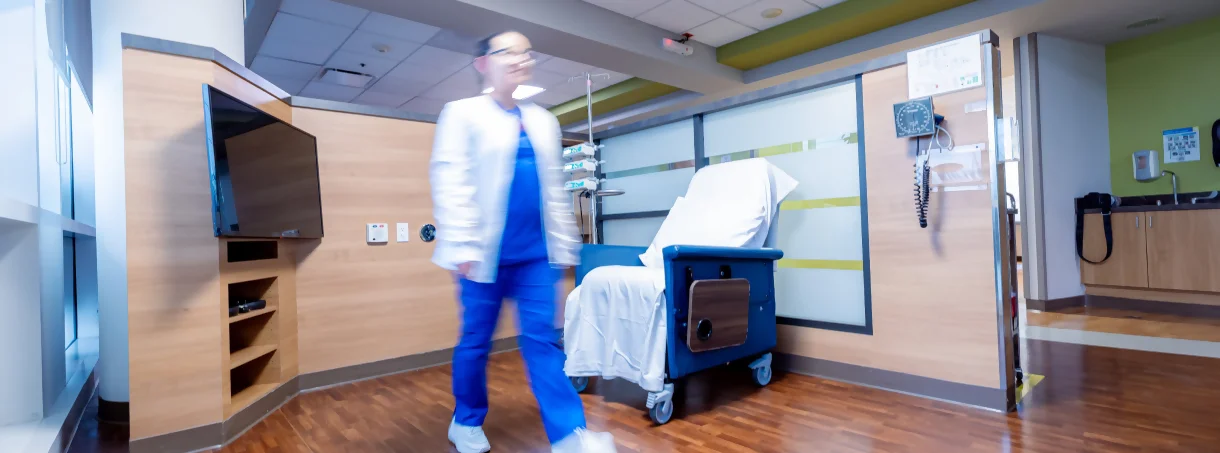
Outpatient Chemotherapy Unit, Observatory Campus
Outpatient Chemotherapy, Observatory Campus – Cancer Center, 3rd Floor
Equipped with 18 cubicles with recliner chairs, televisions, headphones, and laptop tables.
Opening hours:
Monday to Friday from 8 am to 10 pm, Saturday from 8 am to 3 pm.
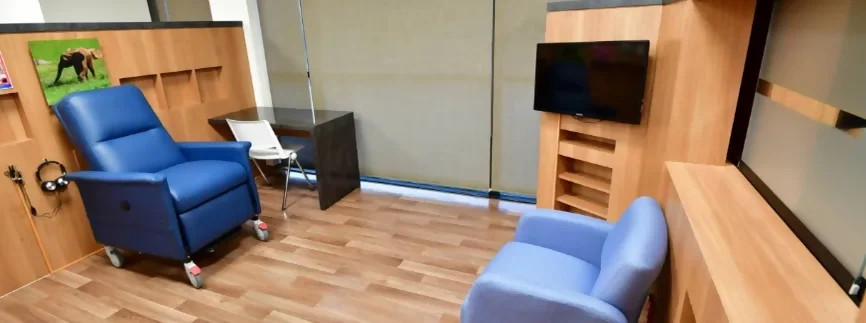
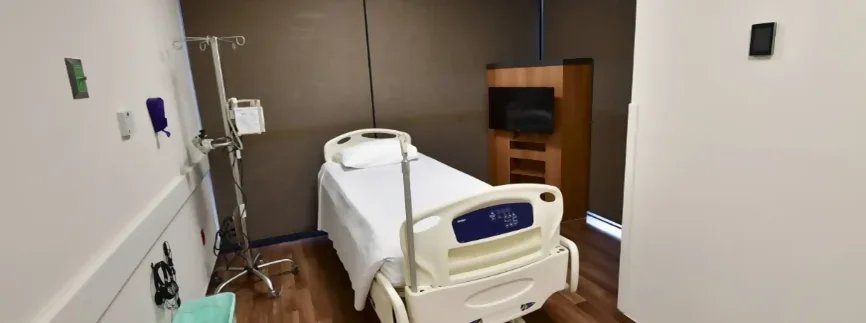
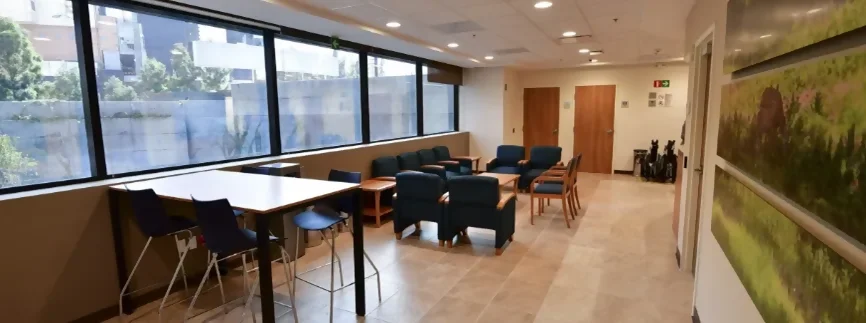
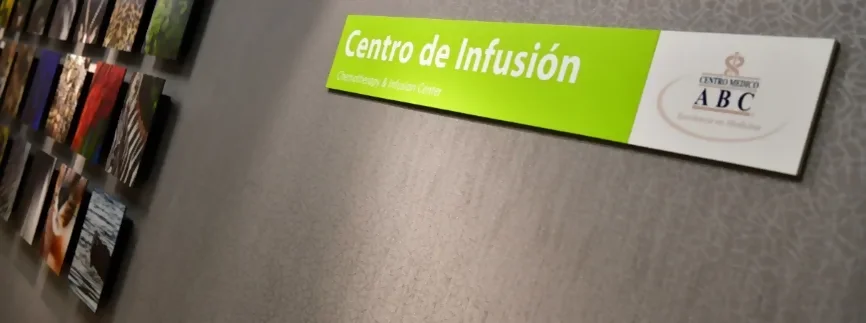
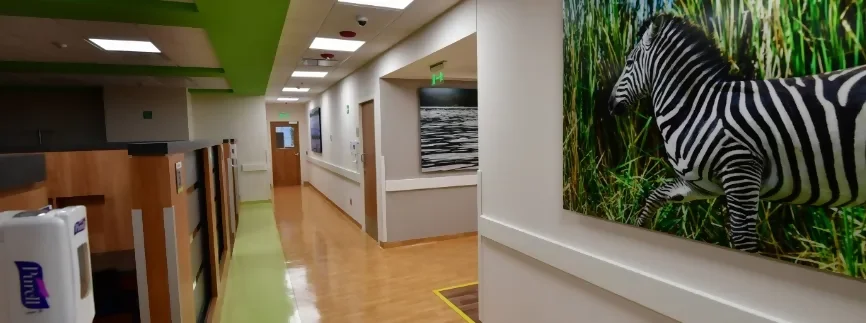
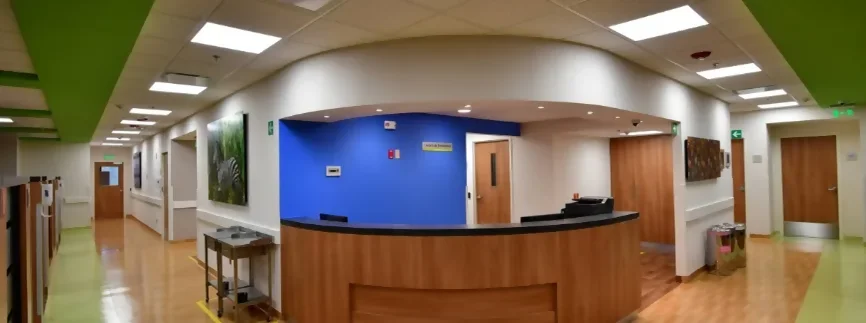
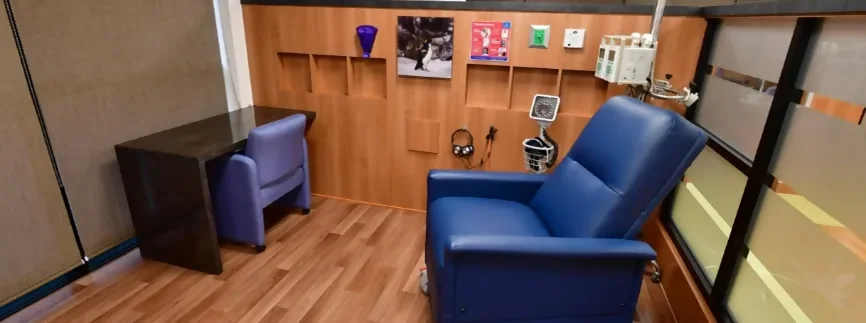
Infusion Center, Santa Fe Campus
Infusion Center, Santa Fe Campus – In Situ Tower, 2nd floor.
Equipped with 8 cubicles with recliner chairs and 1 with a bed; televisions, headphones, and laptop tables; overlooking the garden. 2 of these cubicles have noise isolation for the comfort of pediatric patients.
Opening hours:
Monday to Friday from 7 a.m. to 10 p.m.
Types of Chemotherapy Treatments
Chemotherapy is used to eliminate cancer cells in cancer patients. Its applications include:
- Primary treatment: It can be the only treatment needed to cure cancer.
- Adjuvant therapy: After other treatments, such as surgery, to remove remaining cancer cells and reduce the risk of recurrence.
- Neoadjuvant therapy: Before other treatments, like radiation or surgery, to shrink the tumor and improve treatment success and aesthetics.
- Chemotherapy for symptom improvement or palliation: To relieve symptoms such as pain by reducing cancer cells.
- Chemotherapy for other diseases: Some chemotherapy drugs are useful in treating other diseases, such as bone marrow diseases and immune system disorders.
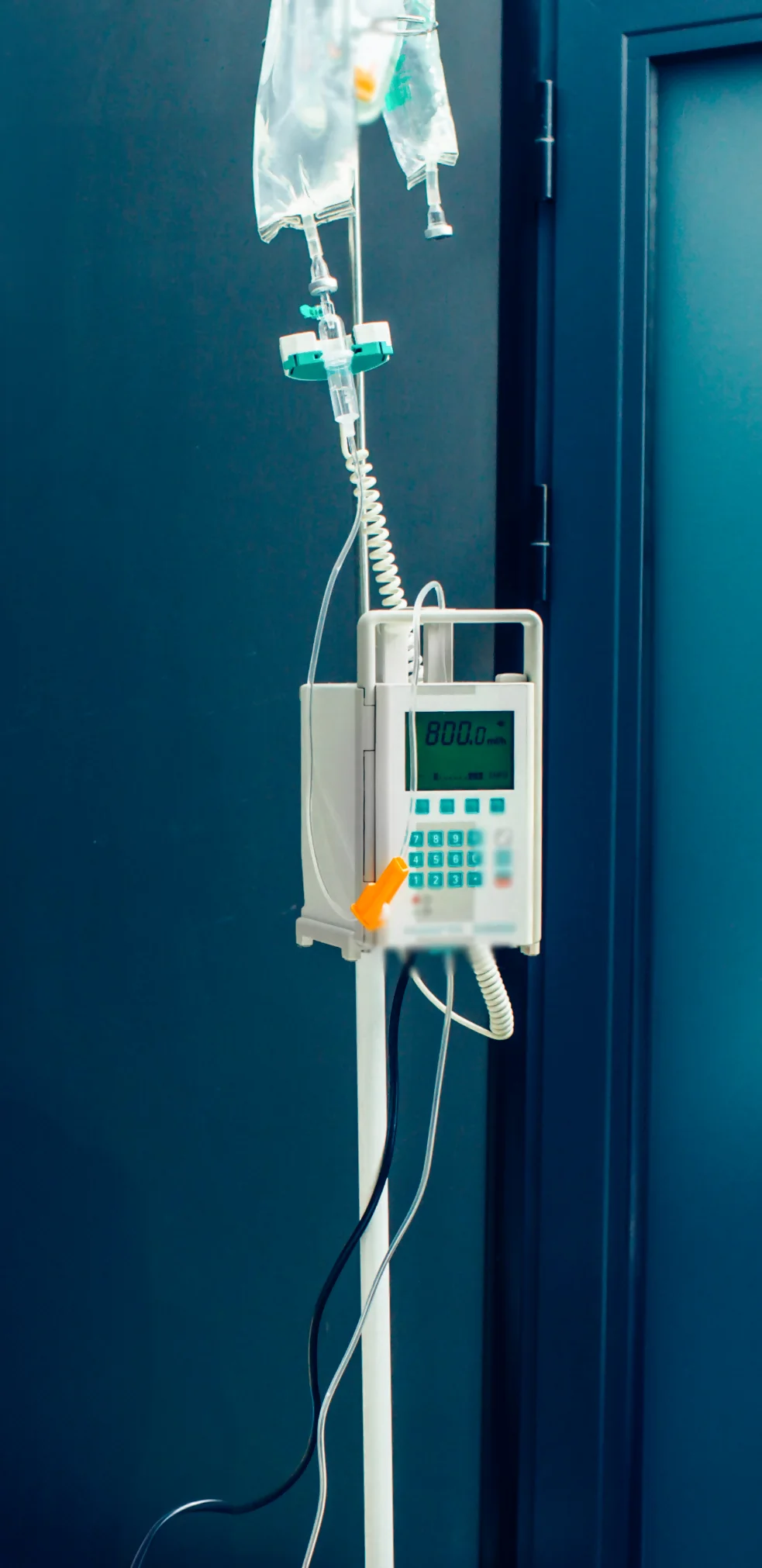
Administration of Chemotherapy Medications

Chemotherapy drugs can be administered in various ways:
- Intravenous Infusions: Through a tube with a needle into a vein in the arm or through a port catheter.
- Pills or Capsules: Taken orally.
- Injections: Administered with a needle, similar to a standard injection.
- Creams or Gels: Applied to the skin for certain types of skin cancer.
- Localized Treatments: Applied directly to specific areas such as the abdomen, thoracic cavity, central nervous system, or bladder.
- Directly to the tumor: Injected into a vein or artery feeding the tumor, or placed near the tumor during surgery in the form of wafers that release the drug gradually.
Chemotherapy: Side Effects
Chemotherapy not only destroys fast-growing cancer cells but also affects healthy cells that grow and divide rapidly, leading to potential side effects.
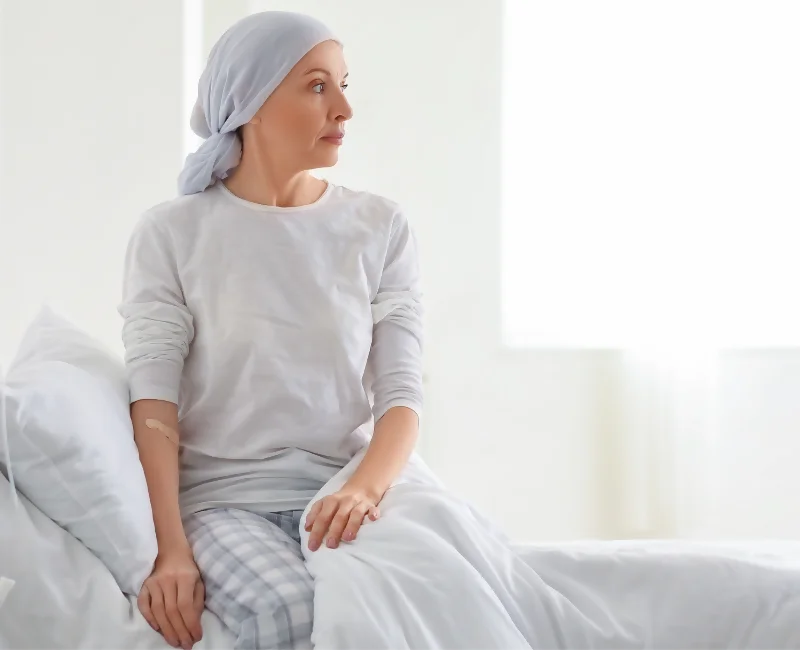
- During treatment: Nausea, vomiting, diarrhea, partial or complete hair loss, loss of appetite, fatigue, fever, mouth sores, pain, constipation, easy bruising, and bleeding.
- Long-term: Lung damage, heart problems, infertility, kidney issues, peripheral neuropathy, and the risk of developing a second cancer.
Your oncologist will guide you regarding the specific effects of your treatment, aiming to minimize them through appropriate dosage, preventive measures, and by informing you about signs to watch for.
Treatment Frequency
The frequency of treatments depends on the specific medications, the characteristics of the cancer, and the body’s ability to recover between sessions.
Common Chemotherapy Treatments

- Breast cancer chemotherapy: For breast cancer, intravenous or pill chemotherapy is used along with other treatments to destroy cancer cells, seek a cure and reduce recurrence. It can also control recurrent or disseminated cancer, although with potential side effects.
- Chemotherapy for leukemia: Chemotherapy is the main treatment for leukemia, using chemicals to destroy leukemia cells. Depending on the type of leukemia, a single drug or a combination of several drugs may be administered, either in pill form or by intravenous injection.
- Chemotherapy for pancreatic cancer: Chemotherapy for pancreatic cancer uses potent drugs to destroy cancer cells, mostly administered intravenously or in pill form. It may be the initial treatment when surgery is not feasible and may be combined with radiotherapy to reduce the size of the cancer and make surgery possible. After surgery, it is used to remove residual cancer cells. In advanced cases, chemotherapy can control the spread of cancer and relieve symptoms such as pain.
- Chemotherapy in prostate cancer: Chemotherapy uses drugs to kill fast-growing cells, including cancer cells, administered intravenously or in pill form. It is an option for disseminated prostate cancer or types that do not respond to hormonal therapy.
- Chemotherapy for colon cancer: Commonly used after surgery for advanced colon cancer or cancer that has spread to the lymph nodes, reducing the risk of recurrence. It can also be administered prior to surgery to facilitate tumor removal. In addition, it is used to relieve symptoms when colon cancer is inoperable or has spread, sometimes combined with radiation therapy.
- Chemotherapy for lung cancer. It is used after surgery to eliminate remaining cancer cells, alone or with radiotherapy, and also before surgery to reduce the size of the tumor. In cases of advanced lung cancer, it can be used to relieve symptoms such as pain.
Where to Find Us
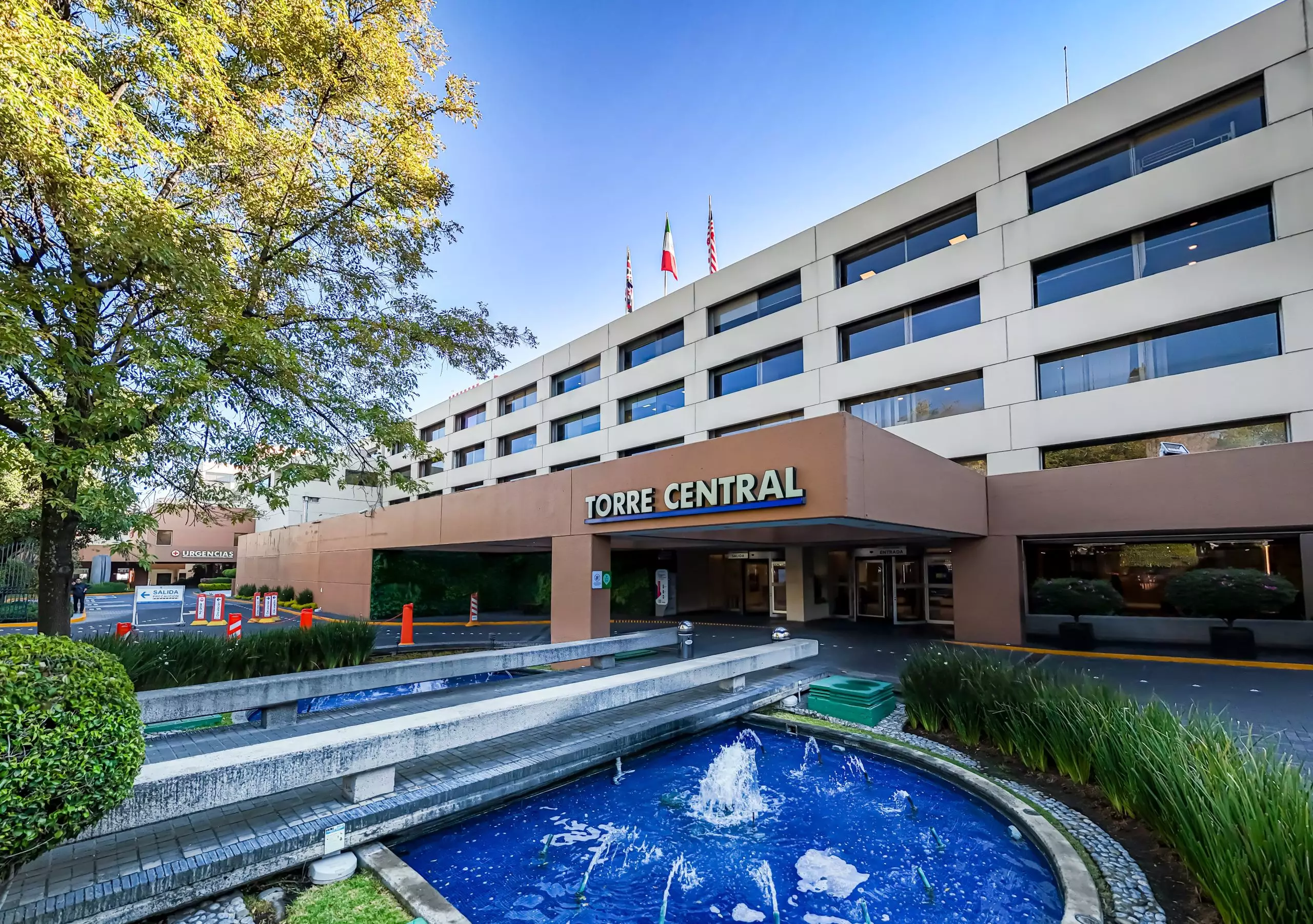
Campus Observatorio
Sur 136 No. 116, Col. Las Américas, Álvaro Obregón, 01120, Cd. de México.
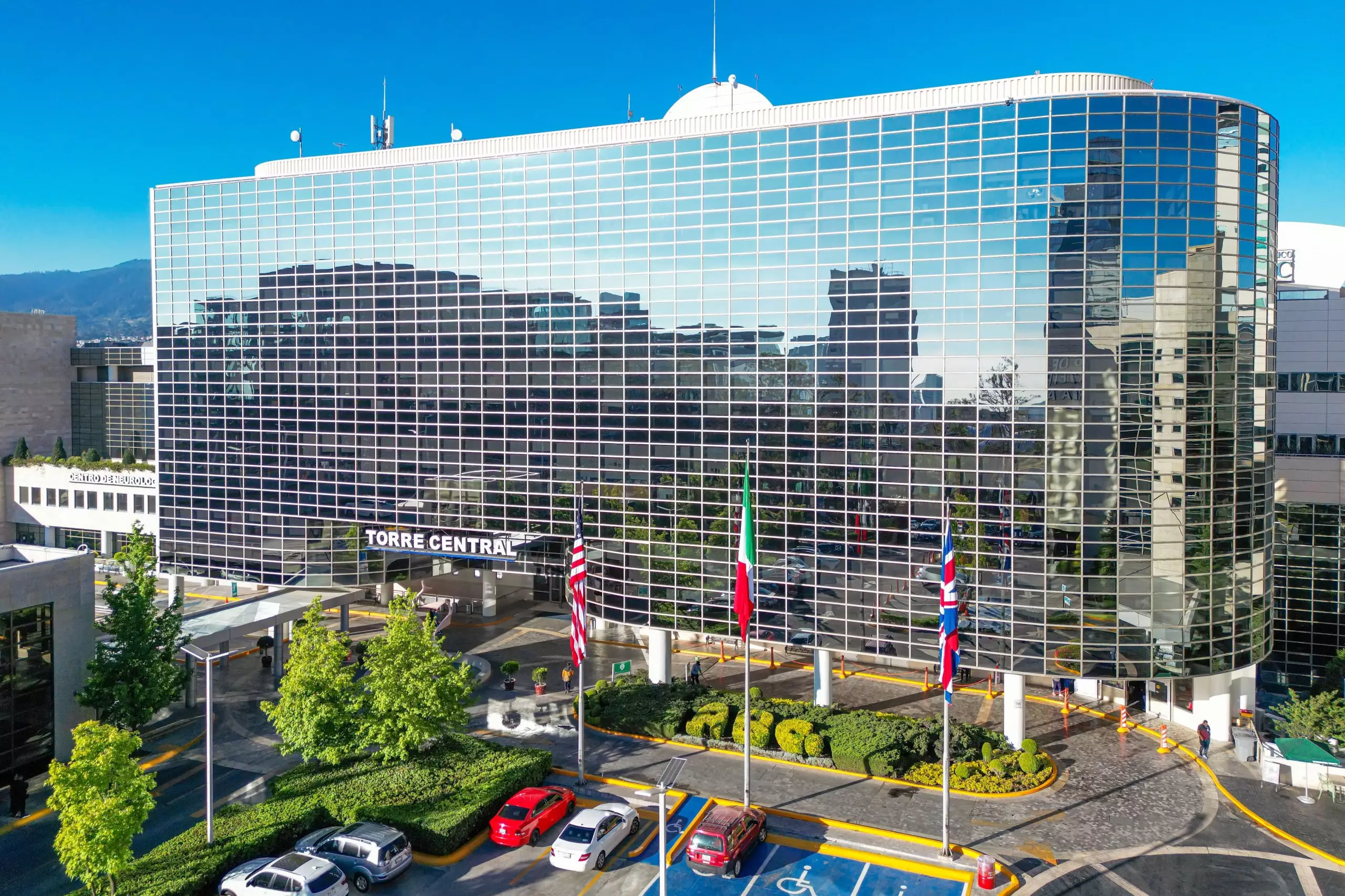
Campus Santa Fe
Av. Carlos Graef Fernández 154, Col. Santa Fe, Cuajimalpa, 05300, Cd. de México.



